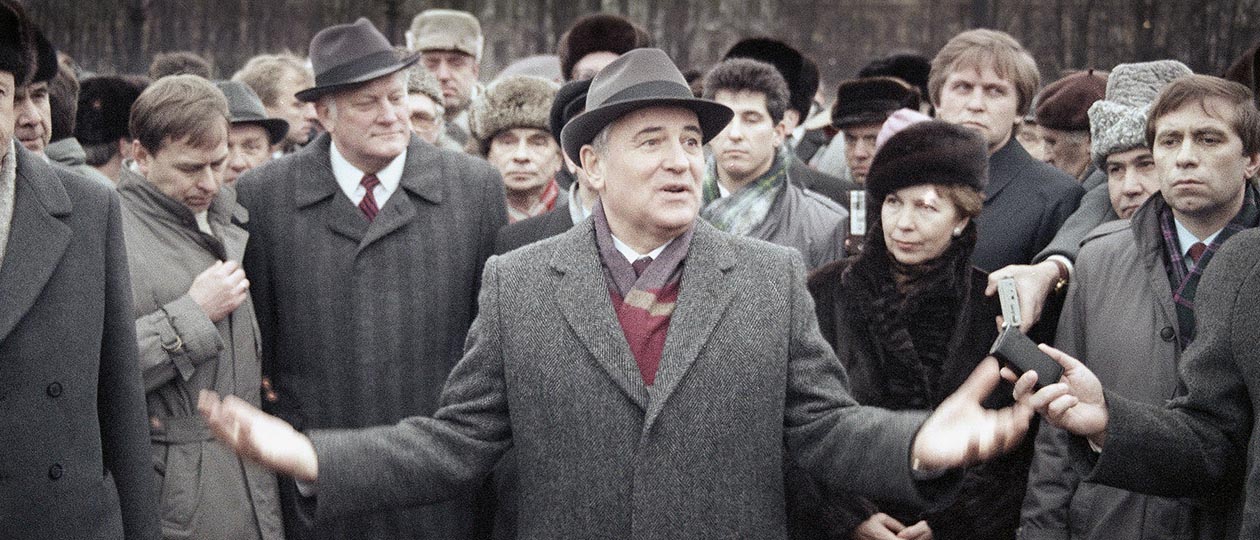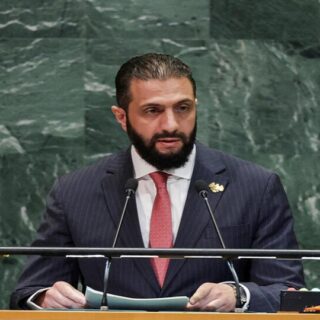
On January 7, 1991, I was discussing current issues with Valery Ivanovich Boldin, Chief of Staff of the USSR President, when a red bulb lit up at his desk signaling a phone call from Mikhail Gorbachev.
On such occasions visitors had to leave Boldin’s office immediately but Valery Ivanovich picked up the receiver with one hand and used the other to motion that I could stay.
As a result, I became an unwitting witness to an episode that had, without exaggeration, historical consequences.
Initially, I heard only Boldin’s response to what Gorbachev told him: “Got it, Mikhail Sergeyevich… Okay, I’ll do it right away…”
Then he hung up and pressed the speakerphone button to address his assistants in the reception room: “Get in touch as soon as possible with Yazov, Kryuchkov and Pugo and tell them that I need to meet them urgently!”
A few minutes later Boldin got a call back from the anteroom: “Pugo is at a meeting of the Supreme Soviet, but your request will be passed on to him while Kryuchkov and Yazov will be here any time soon…”
Here, a few comments are needed. The internal political situation in the USSR was becoming increasingly tense every week, every day. Symptoms of that were all over the place.
And at this very moment the President instructed his chief of staff to urgently summon the head of KGB (Kryuchkov), plus Ministers of Defense (Yazov) and Internal Affairs (Pugo). What could that mean?..
Ten months before that, Lithuanian nationalists declared their land independent which ignited their confrontation with central authorities. The separatists got strong support from the West and those in Moscow who, like Boris Yeltsin, dreamed of replacing the USSR President.
Undermining Gorbachev’s power, in an interview with American TV Yeltsin urged “giving them [the Balts – A. P.] economic sovereignty and independence. They should decide by themselves whether to continue staying within the Soviet Union or not.”
In March 1990, he met in Moscow with Vytautas Landsbergis, one of the founders of Sąjūdis, the Lithuanian pro-independence political movement. According to Landsbergis, they met “in complete secrecy” and had an “exhaustive conversation.”
Two months later, Yeltsin encouraged Latvian separatists, too: “We must destroy this vertical rigid rod. Destroy it – and move towards direct, voluntary relations between sovereign, independent states, towards agreements that would not be dictated by central authorities.” A month later, he issued the same call to Russian dissenters: “Take as much sovereignty as you can swallow!”
All of that emboldened Lithuanian separatists still more. Facing their increasingly brazen actions, Moscow limited itself to threatening (on paper only) warnings.
This prompted Landsbergis to say in an interview with British “Daily Mail”: “Gorbachev has been watching our independence movement grow for two years. He could have stopped it at any moment. But he didn’t.”
…After the meeting with Boldin I resumed my routine duties as the head of the Presidential Information Service that consisted of four journalists, including myself, plus a former staff member of the Central Committee of the Communist Party of the Soviet Union. One of my colleagues represented Krasnaya Zvezda, official newspaper of the Soviet Ministry of Defense, and had the rank of a Colonel.
A heavy smoker, he used to leave our room now and then to take puffs in the corridor. On January 7 he did it again after my meeting with Boldin but came back in a couple of minutes, his face distorted with excitement and his words skipping: “Guess-whom-I-just-met…”
Then he caught his breath and blurted out triumphantly: “I met comrade Defense Minister Yazov! I was smoking near the elevator when the cabin stopped at our floor. Its doors opened, and Dmitry Timofeyevich emerged.
He stepped out of the elevator and froze, wondering where to go next. I marched up to him and reported: “Comrade Marshal of the Soviet Union! Let me introduce myself: Colonel so-and-so…” He glanced at me, said nothing and proceeded to Boldin’s office.”
Next day a transfer of Soviet airborne troops plus Alpha Group (a stand-alone sub-unit of special forces) to Lithuania started. Five days later 13 Lithuanians and an Alpha Group officer died in Vilnius when Soviet troops stormed the local TV tower.
This happened on Sunday late at night, and next morning the whole USSR was waiting for Gorbachev’s reaction.
The Vilnius tragedy was preceded by similar events in Tbilisi (April 1989) and Baku (January 1990). In both cases, Gorbachev claimed that he got no idea how it could have happened.
On January 14, 1991, he used the same trick which shocked even his most loyal servant Anatoly Chernyaev, Soviet President’s assistant for international affairs. “Today, quite naturally the Supreme Council’s session began with the Lithuania cause”, Chernyaev noted in his diary.
“False, irrelevant explanations from Pugo and Yazov. And after the break, Gorbachev himself: an incoherent speech with senseless digressions… Totally hypocritical evasion, no answer to the key issue… It was embarrassing to listen to all that.”
Thus, for the third time in less than two years, Gorbachev’s attempts to rein in the separatists in three Soviet republics, i. e. Georgia, Azerbaijan, and now Lithuania, led to bloodshed.
And on every occasion the head of state, according to his statements, was neither involved nor aware of why it happened that way. To believe Gorbachev, military force was allegedly used without his knowledge and consent.
If that was really so, the heads of KGB and Ministries of Defense and Internal Affairs acted arbitrarily if not committed state crimes. However, they did not admit their guilt while Gorbachev did not even reprimand them.
And there was another substantial element in that story. Fatherland’s faithful servants in uniform were sent into battle on three occasions, from which some of them emerged crippled, and some in coffins. And on each such occasion the Supreme Commander-in-Chief, i. e. Gorbachev, escaped personal responsibility by making them scapegoats, in fact — betrayed them.
After the failed storming of the Vilnius TV tower, the Lithuanian prosecutor’s office opened a criminal case, accusing dozens of people of an attempt to commit a coup d’etat. By that time the USSR had been dissolved and Gorbachev had resigned from his post.
The Lithuanian prosecutor’s office sent him an offer to testify, too, but a graduate from the Moscow State University’s law school declined, claiming that he had already shared everything he knew in numerous interviews.
In one of such interviews, published by Moskovsky Komsomolets on June 28, 1995, Gorbachev relayed all responsibility on Kryuchkov and Yazov: “…these bastards no longer took the president into account.
They wanted to impose their gangster logic on me, to tie Gorbachev up with blood, to present him with a fait accompli.”





